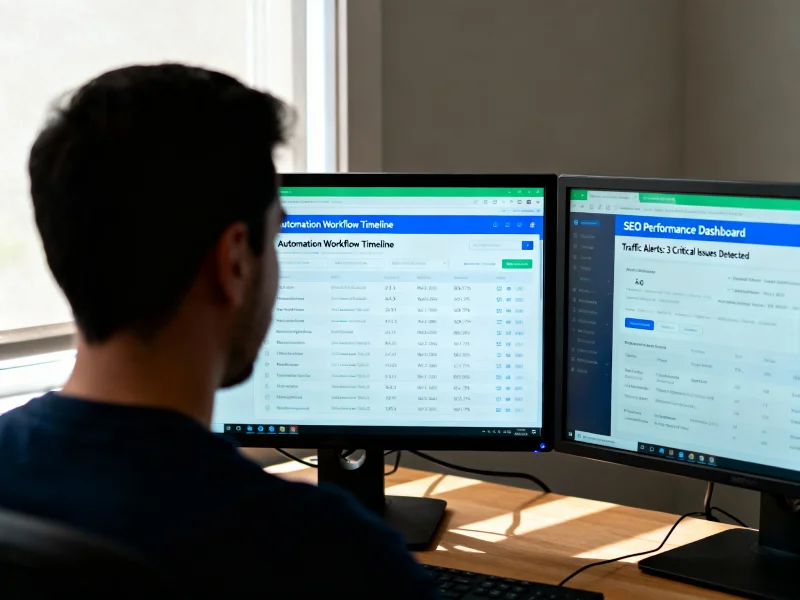Understanding And Recovering From Google Algorithm Updates
In the world of search engine optimization (SEO), staying on top of Google's algorithm updates is crucial for achieving high rankings and maintaining a successful online presence. However, these updates can be unpredictable and difficult to navigate, leaving many website owners feeling frustrated and uncertain about how to recover from any negative impacts.
Understanding and recovering from Google algorithm updates requires a deep understanding of both SEO strategies and the ever-evolving algorithms that power search engines. This article aims to provide an in-depth analysis of common types of updates, explore their potential effects on websites, and offer actionable tips for mitigating any negative impacts. By mastering the art of adapting to algorithm changes, website owners can stay ahead of the game and maintain strong visibility across search results pages.
Types Of Google Algorithm Updates
Google algorithm updates are a necessary part of search engine optimization. They aim to improve the quality and relevance of search results for users. These updates come in different forms, ranging from core updates to minor tweaks that affect specific niches or regions.
Core updates are major changes made to the Google algorithm that have a significant impact on ranking positions across all industries. Such updates can cause fluctuations in website traffic and rankings, affecting thousands of websites worldwide. On the other hand, minor updates often occur regularly with less noticeable impacts. These may target specific issues such as spammy links, duplicate content or low-quality pages.
Common trends in algorithm updates include prioritizing user experience by incorporating factors such as page speed, mobile responsiveness, and site security into their algorithms. Additionally, Google aims to promote authoritative and reliable sources by penalizing sites with fake news or misleading information. Other common themes include enhancing semantic search capabilities through natural language processing (NLP) technology and favoring local businesses over multinational corporations.
In summary, understanding the different types of Google algorithm updates is essential to stay ahead of the competition in online marketing strategies. Keeping up-to-date with industry developments will help optimize website performance while maintaining compliance with best practices set forth by leading search engines like Google.
The Potential Impact Of Algorithm Updates On Your Website
Google algorithm updates can have a significant impact on your website's search engine rankings. These updates aim to ensure that the most relevant and high-quality content appears at the top of search results pages, which means that websites with poor or irrelevant content may be pushed down in rankings. In some cases, algorithm updates can even lead to penalties for websites that engage in unethical SEO strategies.
When an algorithm update occurs, it is important to assess its potential impact on your website. This involves analyzing changes in web traffic and search engine ranking positions, as well as examining any specific factors that may have led to these changes. By understanding how algorithm updates work and keeping up-to-date with current search engine optimization trends, you can adjust your SEO strategies accordingly to maintain or improve your website's rankings.
To help mitigate the potential negative effects of Google algorithm updates, consider implementing the following practices:
- Create high-quality content that adds value for users.
- Use ethical SEO techniques such as keyword research and link building.
- Monitor your website regularly for technical issues such as broken links or slow page load times.
- Stay informed about current search engine optimization trends and adapt your strategies accordingly.
By taking proactive steps to understand and recover from algorithm updates, you can ensure that your website remains visible and competitive in search engines over time without resorting to black hat tactics or other unethical practices.
Identifying And Addressing Negative Effects On Your Site
Having a thorough understanding of the potential impact of algorithm updates on your website is crucial to staying ahead in search engine rankings. However, even with the best preparation and compliance measures, websites can still experience negative effects from algorithm changes. In this section, we will explore how to identify and address such impacts.
The first step in addressing any negative effects is analyzing data before and after an update. This includes monitoring traffic, ranking positions for keywords, bounce rates, click-through rates (CTR), and other key metrics that could be affected by algorithm updates. By doing so, you can pinpoint areas that may have been hit the hardest and make necessary adjustments accordingly.
Another effective way to mitigate negative effects is through conducting regular SEO audits. These audits help detect technical issues or content gaps that could be harmful to your site's rankings or user experience. It also allows you to stay up-to-date with current best practices and ensure that all elements are optimized for search engines. By proactively identifying these issues, you can avoid penalties or drops in rankings due to algorithm updates.
Overall, it's important to remember that recovering from negative impacts caused by algorithm updates requires patience and persistence. While there may not always be a quick fix solution, taking steps such as analyzing data and conducting regular SEO audits can significantly improve your chances of recovery. As such, keeping a close eye on industry trends and continuously optimizing your site for search engines should remain top priorities for any website owner looking to succeed online.
Best Practices For Staying Ahead Of Algorithm Changes
As Google's algorithm updates can significantly impact a website's traffic and ranking, it is essential to stay ahead of these changes. While there are no guarantees in the constantly evolving world of SEO, implementing best practices can help mitigate potential negative effects.
Firstly, conducting regular SEO audits can identify areas that need improvement. These audits should include an analysis of technical aspects such as site speed and mobile-friendliness, as well as content optimization. By addressing any issues found during the audit promptly, websites can avoid penalties from algorithm updates.
Secondly, staying up-to-date with industry trends and Google announcements through reputable sources is crucial. This allows website owners to make informed decisions about their SEO strategy and adjust accordingly if necessary.
Thirdly, building a diverse backlink profile by earning links from high-authority sites is important. Having a natural link portfolio helps demonstrate the website's authority and relevance to search engines, making it less susceptible to fluctuations caused by algorithm updates.
Lastly, producing quality content regularly remains one of the most effective ways to boost rankings and maintain visibility on search engine results pages (SERPs). Websites should focus on creating relevant content that provides value to their audience while incorporating targeted keywords naturally.
- Conduct regular SEO audits
- Stay up-to-date with industry trends
- Build a diverse backlink profile
- Produce quality content regularly - Optimize website structure and on-page elements such as meta tags and headings
Strategies For Recovering From Algorithm Update Penalties
Having a solid understanding of the best practices for staying ahead of algorithm changes is critical. However, it's important to recognize that even with these strategies in place, penalties can still happen. When this occurs, it's essential to have an effective plan in place for recovering from algorithm update penalties.
The first step is penalty assessment. Carefully analyzing the situation will help identify what went wrong and how to fix it. This involves conducting a thorough review of your website, looking at factors such as content quality, keyword usage, backlinks, and overall user experience. By pinpointing where issues lie, you'll be better equipped to develop a recovery plan.
One key strategy for recovering from algorithm update penalties is through link building techniques. Building high-quality links takes time and effort but can ultimately boost your website's rankings and improve its overall visibility online. Effective link-building strategies include guest posting on relevant websites, creating informative infographics that other sites want to share and linking out to authoritative sources within your industry niche. These tactics can all help establish your site as a reliable source of information while also improving domain authority.
Recovering from Google algorithm updates requires careful analysis followed by strategic implementation of solutions aimed at boosting search engine ranking positions (SERPs). Penalty assessments are vital in identifying areas that need improvement while link building techniques offer long-term benefits when done correctly over time. Whether developing new content or revamping existing pages, always keep the end goal in mind: providing value and relevance to users searching online so you can continue reaching potential customers effectively over time without being penalized by Google's algorithms which undergo constant change!
Frequently Asked Questions
How Often Does Google Update Its Algorithms?
The frequency and impact of algorithm updates by Google vary depending on the type of update. Google releases minor updates to its algorithms almost every day, which may not have a significant effect on search rankings. On the other hand, major updates like Panda or Penguin can cause substantial changes in the way search results are displayed, affecting numerous websites' visibility and traffic. Algorithm update types range from quality updates that assess content relevance and expertise to core updates that improve overall ranking signals. Understanding these types of algorithm updates is crucial for website owners and SEO specialists to stay informed about potential impacts on their online presence.
Can Small Websites Be Affected By Algorithm Updates?
Measuring the impact of algorithm updates on small websites can be a challenging task. While it is true that larger sites tend to feel the brunt of these changes, smaller ones are not entirely immune either. In fact, they may experience more significant fluctuations in traffic and rankings due to their relatively modest size. Strategies for recovery vary depending on the specific update and its effects on your site. However, some general tips include monitoring your website's performance regularly, analyzing search data for trends or patterns, and making necessary adjustments to your content and optimization strategies. By staying vigilant and proactive, you can minimize the negative impact of algorithm updates on your small website while maximizing its potential for growth over time.
Are There Any Specific Industries Or Niches That Are More Vulnerable To Algorithm Updates?
Travel blogs and e-commerce sites are among the industries that are highly vulnerable to algorithm updates. These types of websites typically have a high focus on search engine optimization (SEO) in order to drive traffic and sales, which can make them more likely to be impacted by changes in Google's algorithms. For example, an update could penalize sites with low-quality content or those with too many spammy backlinks - both of which are common tactics used in these industries. It is important for businesses operating within these niches to stay up-to-date on any algorithm changes and adapt their strategies accordingly in order to maintain their online presence and rankings.
What Is The Difference Between A Manual Penalty And An Algorithmic Penalty?
When it comes to the topic of recovering from Google penalties, one important distinction is between manual and algorithmic penalties. Manual penalties are imposed by human reviewers at Google who have determined that a website has violated their guidelines in some way. Algorithmic penalties, on the other hand, are triggered automatically by updates to Google's algorithms that aim to improve search results by penalizing websites that engage in spammy or manipulative practices. Recovering from either type of penalty requires different strategies: for manual penalties, sites need to identify and fix specific violations; for algorithmic penalties, they need to focus on improving overall site quality and trustworthiness. While both types of penalties can be challenging to recover from, understanding the differences between them can help webmasters develop more effective recovery plans.
Can Hiring A Seo Professional Guarantee Protection Against Algorithm Updates?
Hiring an SEO expert can provide value in terms of optimizing a website for search engines and potentially minimizing the impact of algorithm updates. However, it is important to note that no professional can guarantee complete protection against algorithm updates. The best prevention tips include following Google's guidelines, creating high-quality content, and staying up-to-date on industry changes. Ultimately, the key to withstanding these updates lies in maintaining a holistic approach to SEO that prioritizes user experience and relevance over quick fixes or gimmicks. As such, relying solely on an SEO professional may not be enough to achieve long-term success in search engine rankings.
Conclusion
Google algorithm updates can have a significant impact on website rankings and traffic. It is important for businesses to understand the frequency of these updates, as well as the potential vulnerabilities that exist in their industry or niche. Both manual penalties and algorithmic penalties can occur, which require different strategies for recovery. While hiring an SEO professional may provide some protection against algorithm updates, it cannot guarantee complete immunity.
Overall, businesses should focus on creating high-quality content that meets user needs and follows Google's guidelines. Keeping up with industry trends and best practices can also help mitigate the effects of algorithm updates. By staying informed and adaptable, businesses can successfully navigate changes in search engine algorithms and maintain strong online visibility.









